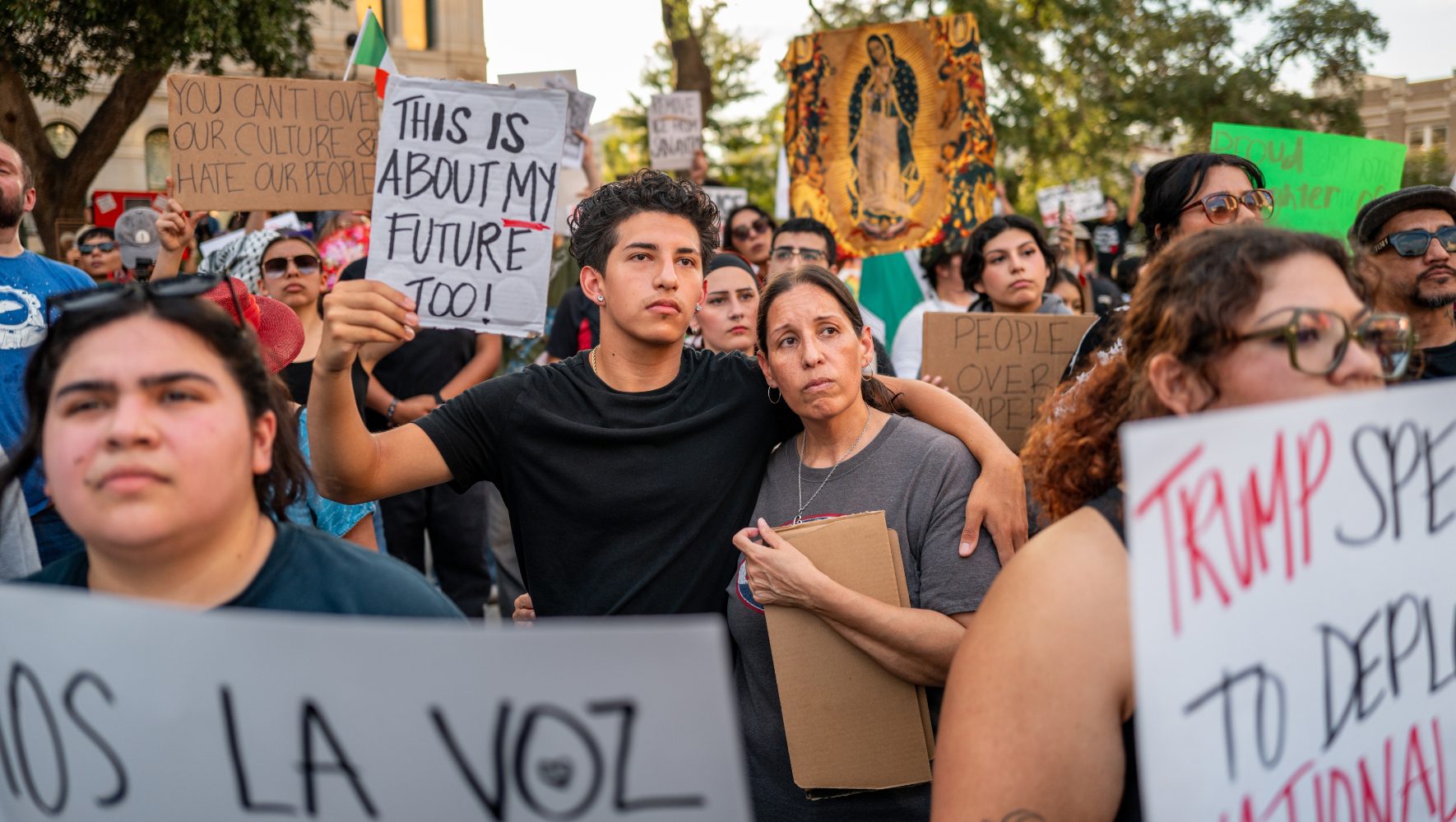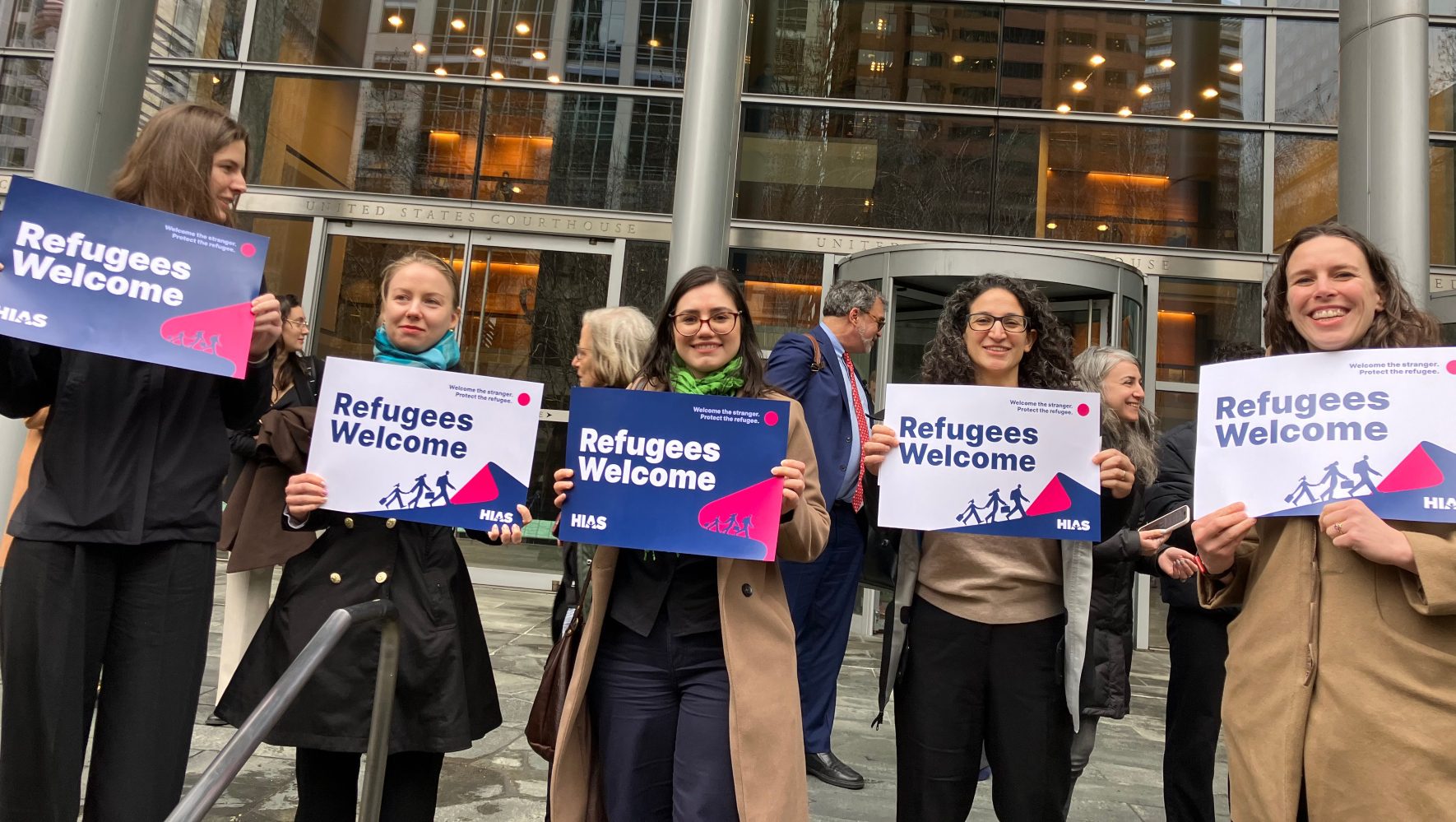Statement to the Senate Judiciary Committee on Refugee Resettlement
Oct 01, 2015
Statement submitted to the Judiciary Committee of the United States Senate
Hearing: “Oversight of the Administration’s FY 2016 Refugee Resettlement Program: Fiscal and Security Implications”
October 1, 2015
HIAS has welcomed refugees to the United States as new Americans for more than 130 years. As a Jewish-American organization, HIAS is acutely concerned both with the imperative to rescue refugees and to protect the security of our country. As Jews, we support policies that fulfill the Torah's mandate to 'welcome the stranger,' as we know that effective resettlement policies make the difference between life and death, between oppression and the opportunity for success.
Not since World War II has the world seen a humanitarian crisis on the scale that we face today. Nearly sixty million people are displaced from their homes due to violence and persecution. When faced with human suffering on this scale, we must decide how we will respond as a nation. In 1945, President Truman remarked that the United States “may do something to relieve human misery, and set an example to the other countries of the world which are able to receive some of these war sufferers. I feel that it is essential that we do this ourselves to show our good faith in requesting other nations to open their doors for this purpose.” These words still hold true today.
For seventy years the U.S. has been an example to the rest of the world and has been a leader in providing both humanitarian assistance and for resettling the most vulnerable refugees from around the world. This leadership has not come without challenges; however we have been able to overcome those challenges and provide refuge. As a result of our efforts we have thrived as a nation.
The challenges we face today are not small. The three “durable solutions” in refugee protection are: repatriation, local integration, and resettlement. As the conflicts that cause displacement continue to escalate and with no end in sight, returning home is not a safe option for most people. The escalating conflicts cause regional instability and a strain on host countries, many of which are developing countries, and this makes local integration unlikely. Waiting out the conflict is also not an option for many. Refugees in host countries face inadequate housing and food, limited access to medical and psychological care, lack of education opportunities, and limited ability to support themselves. Resettlement is the only solution for the most vulnerable refugees.
The U.S. Refugee Admissions Program has resettled three million people since it was implemented in the early 1980s. We have the infrastructure to resettle refugees from anywhere in the world. To increase our current efforts would require a financial investment, however there are ways to increase the efficiency of the program such as eliminating redundancies in the application process.
Every nation has an obligation to keep its citizens safe. Of course the United States must ensure that anyone resettled in our country does not intend to do harm. Since 9/11, security screenings for refugees have become much more rigorous. In fact, refugees are the most thoroughly vetted of all types of immigrants entering the country. The Department of State and the Department of Homeland Security share in the responsibility of screening refugee applicants. An applicant’s biographic information and biometric information are vetted against multiple law enforcement and intelligence databases including the State Department’s Consular Lookout and Support System (CLASS), which includes the government’s terrorist watchlist information, the Federal Bureau of Investigation (FBI) Integrated Automated Fingerprint Identification System (IAFIS), and DHS’s Automated Biometric Identification System (IDENT). This is in addition to the in-person interview conducted by DHS staff to ascertain the validity of the claim for refugee status. The system is in place and it is effective at screening out those that wish to do harm. While we strive to perfect this process, security concerns must not hold us back from enacting policies that save lives and are in our national interest.
Refugees resettled in the United States have an opportunity to build a new life. Most of them seize that opportunity to the benefit of themselves but also to the benefit of the communities that welcome them. Refugees start businesses, pay taxes, and purchase goods and services. They can help to revitalize cities and create new jobs. Refugees can also bring skills that are rare for Americans, which will also benefit society at large. While there is an investment to be made in resettling refugees, there is also a tremendous gain.
In the aftermath of World War II, the price for keeping doors closed to refugees was made starkly clear. We can and we must do more to alleviate the global refugee crisis. This will not come without a dedication of resources, but those resources will be used to help those faced with unspeakable tragedy to reach safety and rebuild their lives. The U.S. must continue to set the example for the rest of the world and use our resources and expertise to help the most vulnerable. President Truman observed that during a “period of unspeakable human distress is not the time for us to close or narrow our gates.” We must take this to heart and use it to guide us in this time of crisis.



